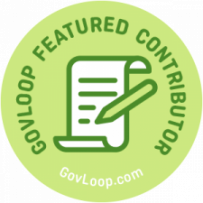 More than half a million people in the U.S. are homeless on a given night.
More than half a million people in the U.S. are homeless on a given night.
No one is in a better position to help address this serious problem than the public sector.
As public officials look for solutions to lift people out of homelessness, three major factors continue to exacerbate this crisis. These are addiction, behavioral health and housing affordability.
To implement effective solutions, those with the power to drive change must have a comprehensive, 360-degree view of their landscape. They must be able to see, for example, the unintended consequences from well-intentioned policies and workflows. They must know where gaps between policy goals, relevant departments and service exist. Disconnected workflows result in disconnected communities.
To bridge those gaps, public officials are leveraging open data and data storytelling to help bring disparate data together in one accessible place. By giving leaders the ability to communicate and share insights with stakeholders — including first responders, law enforcement, nonprofit groups and the public — they can begin to address the underlying causes of the homelessness, pinpoint the exact services needed, and connect the right players and programs to move the needle.
Following are noteworthy dashboards, stories, and resources that are playing a pivotal role right now in improving response to the homelessness crisis. Check them out to spark ideas for your own jurisdiction.
Combating Rising Homelessness in Los Angeles County

Photo credit: Jeff Turner/Flickr
University of Southern California Sol Price School of Public Policy created a data story in partnership with Los Angeles Homeless Services Authority available on USC Price’s Neighborhood Data for Social Change platform.
The site brings together data on vulnerable populations and the underlying causes of homelessness, as well as data on re-housing individuals to provide innovative opportunities for collaborative research and meaningful policy strategy.
Seattle’s Homelessness Response

Photo credit: Ian d’Andrea/Flickr
Seattle recently launched a new performance site that includes comprehensive data and context that helps human services providers, public health officials, nonprofit groups, researchers, business owners and other community stakeholders explore progress toward addressing homelessness.
“While we cannot solve this crisis overnight, we must continue urgent action to make progress,” said Mayor Jenny Durkan. “We must work together to prevent more people from falling into homelessness, to bring more people off the streets and into safer places, and to pick up garbage, waste, and needles. As we do so, we must be accountable to Seattle taxpayers about the investments we are making, what is working, and where we need to innovate.”
New York City’s HomeStat

Photo credit: Pom’/Flickr
New York City publishes data on its homelessness outreach effort. The city says the program, dubbed HomeStat, is “the most comprehensive street homelessness outreach effort ever deployed in a major American city.”
HomeStat data is published on the city’s open data portal daily, weekly and monthly through the city’s 311 program. It gives site visitors the ability to drill into the data from the portal and provides the most accurate real-time reflection of what outreach teams see on the ground every day.
Governments like those above that leverage data for actionable insight can develop sustainable initiatives to address homelessness and its root causes. Creating connections with data also streamlines internal efforts while facilitating necessary collaboration among all involved stakeholders for budget-saving efficiencies, and, more importantly, greater results.
Interested in becoming a Featured Contributor? Email topics you’re interested in covering for GovLoop to featuredcontributors@govloop.com. And to read more from our Spring 2021 Cohort, here is a full list of every Featured Contributor during this cohort.
Meredith Trimble is a former municipal official and Town Council Acting Chair, who focused on strategic planning, annual budgeting and bonded infrastructure projects. Her government experience also includes posts in both federal and state-level executive branch agencies: Associate Editor of the Federal Election Commission’s FEC Record; and Director of Education for the CT Office of State Ethics. In her current role as a Content Manager, Editorial with Tyler Technologies, Inc., she writes content to help empower those who serve the public. Her current focus is to help facilitate data-enabled organizations and create connections between governments and those they serve.





Leave a Reply
You must be logged in to post a comment.